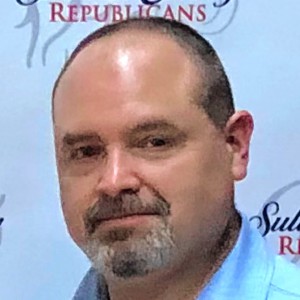Sanborn’s casino should create a bidding war – if not for its legal problems
| Published: 02-21-2024 4:16 PM |
In the last 14 months, Chicago gaming entrepreneur Greg Carlin has bought two New Hampshire casinos and is now investing $25 million refurbishing and expanding them. Ocean Gaming Casino overlooks Hampton Beach. The second, under construction, will sit in Rochester’s Lilac Mall, which Carlin also purchased.
Why invest so much in New Hampshire? “Historic horse racing,” a game approved by lawmakers in 2021 that’s played on what look like slot machines. Carlin is one of several national game operators who’ve largely taken over New Hampshire’s new historic horse racing market.
“Before the historical horse racing law passed … these properties were small table games with very low stakes,” said Carlin, owner of G2 Gaming, during a tour of his two-story Hampton casino, Ocean Gaming. “And so (New Hampshire) really wasn’t on my radar screen.”
Here’s why HHR changed that.
State regulations allow game operators to keep 75 percent of HHR revenue versus 55 percent allowed on table games like poker and blackjack. In December alone, owners of the 10 casinos with HHR machines collected $8.8 million versus $2.15 million on table games. The remaining revenue for both games goes to charities and the state.
Another plus: Business competition is controlled.
The state has capped HHR licenses at the existing 14 until July. Lawmakers appear on track to extend that by seven years or indefinitely, under competing Senate bills. Both would also allow up to 19 licenses to accommodate the five companies that have HHR license applications under review by the New Hampshire Lottery.
Carlin isn’t alone in seeing potential in New Hampshire’s gaming industry.
Article continues after...
Yesterday's Most Read Articles
 Herd departs Hartford’s last remaining dairy farm
Herd departs Hartford’s last remaining dairy farm
 At Dartmouth, hundreds protest ongoing war in Gaza and express support for academic freedom
At Dartmouth, hundreds protest ongoing war in Gaza and express support for academic freedom
 Claremont removes former police officer accused of threats from city committees
Claremont removes former police officer accused of threats from city committees
 Over Easy: ‘A breakfast without a newspaper is a horse without a saddle’
Over Easy: ‘A breakfast without a newspaper is a horse without a saddle’
In the last two years, all but two casinos with an HHR license or access to one have changed hands, going from individuals running “mom and pop” shops to big-name national gaming companies, including Churchill Downs and Delaware North.
Individual owners couldn’t afford HHR machines, which can cost $20,000 each. And they realized the state’s cap on HHR licenses made their casinos quite valuable. Getting a license requires buying the casino that has it and passing the state’s deep-dive background check.
Rick Newman, a lobbyist for the NH Charitable Gaming Operators Association, which represents casino owners, said it’s not unusual to see a casino sell for seven figures. Others put it even higher, at $10 million in some cases.
“HHR machines are attractive, and that’s proven by every casino in the world,” Newman said. “The most profitable thing on their floor are their electronic games. So in New Hampshire, we never had that before, and we’re only now seeing how much money electronic historic horse racing machines generate.”
That should make the HHR license up for grabs now a hot commodity – if not for the legal questions hanging over the one company with a claim to it: Win Win Win, owned by former state Sen. Andy Sanborn.
Sanborn had reportedly been trying to sell Win Win Win before the state ordered him to do so in December, after concluding he had concealed the nature of his business in obtaining a pandemic loan that was not open to casinos.
Under the state’s order, Sanborn must sell by June, but he can request one three-month extension if he has a sale pending by then. Should he fail to sell in time, the state will revoke his license to run a gaming facility and host charitable games. Sanborn does not have an HHR license, but the fact that Win Win Win is eligible for one makes the company valuable.
Meanwhile, Sanborn and his wife, Rep. Laurie Sanborn, are under state and possible federal investigation for the alleged misrepresentations on their pandemic loan application and for allegedly using the money to enrich themselves. Their purchases included a Ferrari Sanborn bought for his wife and two Porsche race cars, according to the Attorney General’s Office.
Add to that the August finding by the Attorney General’s Office that Sanborn and Win Win Win are “not suitable” to be associated with charitable gaming in New Hampshire, a finding that prohibits it from holding any gaming licenses, including one for HHR.
Those challenges are not small – for Sanborn or a buyer, said Newman.
“Any location that announced they were selling, if they did not have legal problems hanging over them, there would be a line of bidders looking to buy,” he said, noting that he was not speaking about Sanborn’s situation specifically.
If Win Win Win is convicted of a state or federal felony, it would be prohibited from holding a gaming license for 10 years under state law. It would be five years for a misdemeanor conviction. Buying the company before the criminal case is resolved is too big a risk, gaming experts said, and it’s unclear when the Attorney General’s Office will decide whether to charge the Sanborns and/or Win Win Win.
Attorney General John Formella said he referred the matter to New Hampshire’s U.S. Attorney’s Office, but that office would not say if it has launched an investigation.
Those unresolved legal issues are enough to give Dick Anagnost pause. He helped write the state’s gaming legislation and will soon co-own six casinos in New Hampshire with Los Angeles-based Peninsula Pacific Entertainment. Rumors that say he and Peninsula are pursuing a deal with Sanborn are untrue, he said.
“How many people want to involve themselves in that?” Anagnost asked. “I wouldn’t take on Sanborn’s legal problems.”
A buyer would also have to overcome the Attorney General’s Office’s determination that Win Win Win is not suitable to be associated with charitable gaming, based on the alleged pandemic fraud. That is significant because an unsuitability finding makes Win Win Win ineligible to hold a gaming license unless a new buyer can make sufficient business changes to resolve the state’s concerns.
John Conforti, chief compliance officer for the New Hampshire Lottery, said he could not discuss specifics about the Sanborn and Win Win Win case. He said he also could not disclose whether anyone has expressed an interest in Win Win Win’s license.
Sanborn’s best chance at a sale may be striking a deal that allows a buyer to build protections into a contract to account for the outcome of the criminal investigation. There is an incentive for a buyer to do so: it would take the company’s HHR license off the market, preventing anyone else from securing it.
If Win Win Win does sell, only one thing is certain: Its casino would have to be in Concord because the gaming license cannot be transferred outside the city. A new owner would not have to operate out of Sanborn’s Concord Casino on Main Street, however.
Carlin said too that he isn’t currently pursuing Sanborn’s casino. He is focused on his own, both of which are under construction.
His Hampton room remains open as he expands the first floor and the number of HHR machines, from 91 to 109. Carlin, who led seven casino developments in the U.S. and Canada while at Rush Street Gaming, saw a different opportunity in Rochester: urban revitalization.
Rather than rent space in the tired Lilac Mall for his planned 32,000 square casino, Carlin bought both and is redeveloping the mall.
“There’s a new trend that was starting in gaming that we sort of missed early on: Taking underutilized retail spaces … and converting them to gaming,” he said.
Carlin plans to have 28 table games and 220 HHR machines. There will also be bingo. New Hampshire requires casinos to share some of their gaming revenue with charities; the state is unique in doing so. Each charity must be given up to 10 days a year.
In December, charities working with Oceanfront Gaming received nearly $65,740 from HHR and table games, according to a New Hampshire Lottery financial report. Carlin’s team is reaching out to charities with a goal of partnering with local nonprofits.
“If you’re a nonprofit, I don’t know why you wouldn’t be interested in it,” he said. “It’s free money. It’s a big contribution.”


